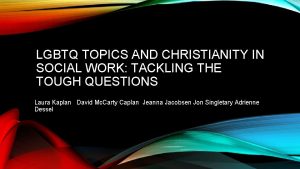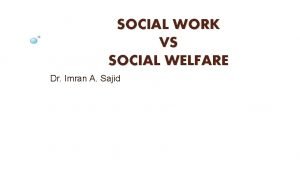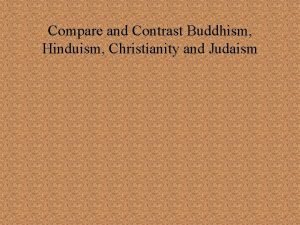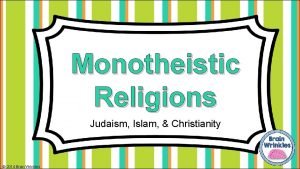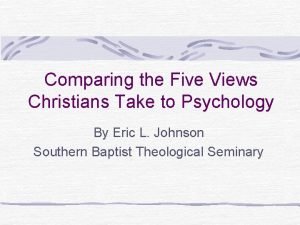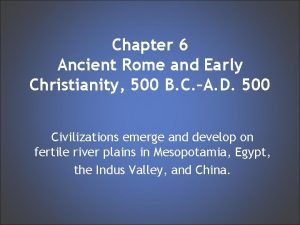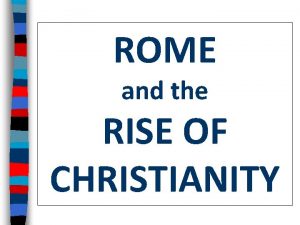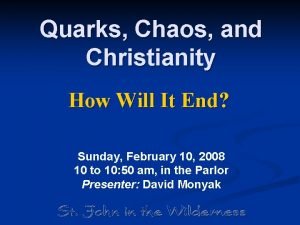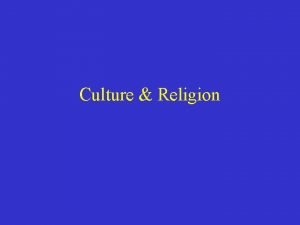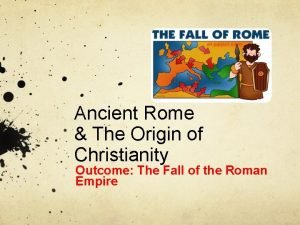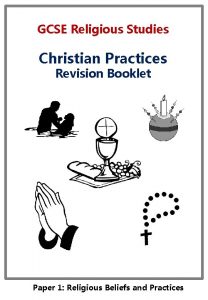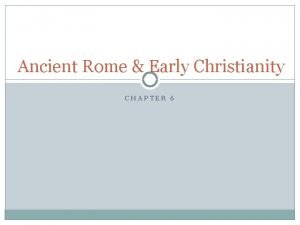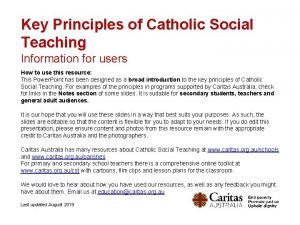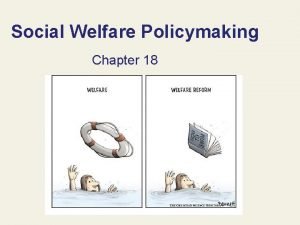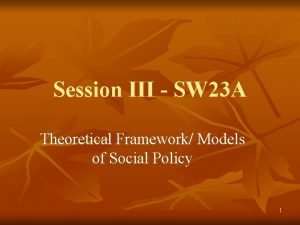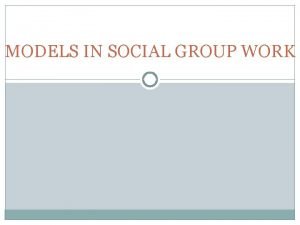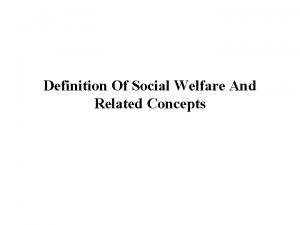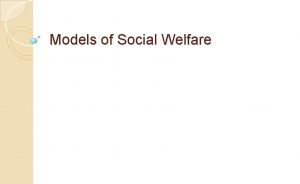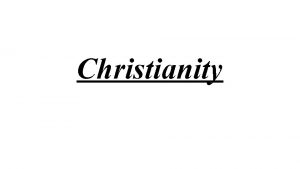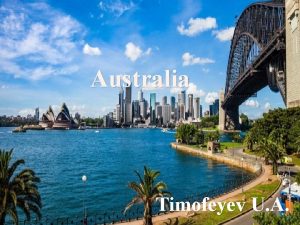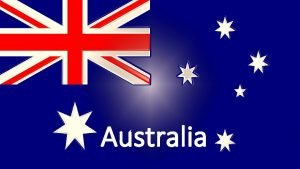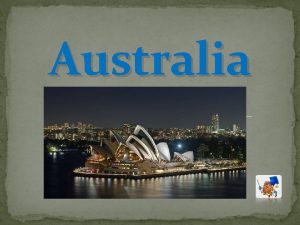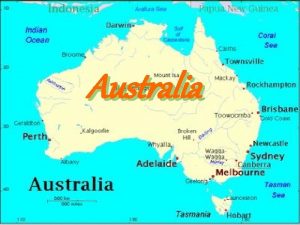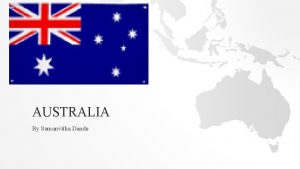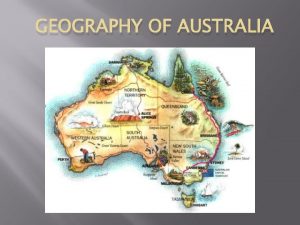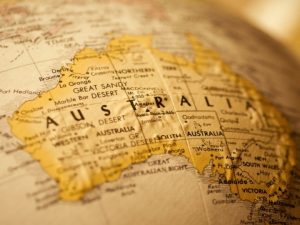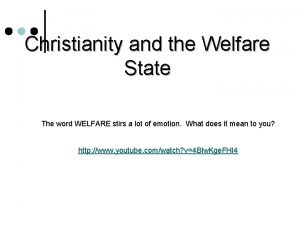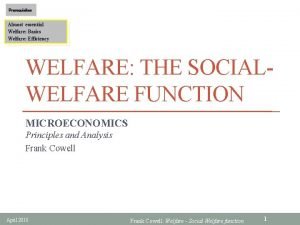Christianity and Social Welfare in Australia Social Welfare






















- Slides: 22

Christianity and Social Welfare in Australia Social Welfare Education Public Morality © Karen Devine 2008

The Christian call to service n n a) b) c) d) e) f) Christian denominations generally have “a call to service” as part of their life mission. Since 1788 Christians have worked in many aspects of social welfare such as: Orphanages Hospitals Prisons Shelters or refuges Homes for the aged Hostels

Christian Social Welfare Groups • • a) b) c) d) Many organisations were funded by Colonial Government subsidies. The groups which have played a key role in Australia’s history are: Catholic Sisters of Charity Sydney City Mission established in 1862. Salvation Army arriving in Australia in 1880. The St Vincent de Paul Society began its mission in 1881 caring for the aged, homeless and poor.

Christian Social Welfare Groups f) Central Methodist Mission began work in 1884. Its mission was “A living Christ for a Dying World”. Lifeline began in 1963. g) The Brotherhood of St Laurence began its welfare role in 1930. h) Anglicare was established in 1856 to care for homeless children, women, the unemployed and the poor. i) Sydney Rescue Work Society began its work caring for women and children.

Prominent Christians n Caroline Chisholm (Catholic) was a great lobbyist for the rights of migrants, especially women and children. n She led changes in conditions on board immigration ships. n She set up shelters for those in the gold fields and organised sponsored immigration of families to reunite with their convict loved ones.

Prominent Christians n John Dunmore Lang (Protestant) was concerned with people living in overcrowded industrial slums. n He lobbied for government assistance and promoted the immigration of skilled workers into the colony.

Prominent Christians n Rev. John Gribble (Protestant) spoke out against the treatment of Aboriginal people. n His complaints largely went unheard. n His son continued to argue the cause. n Yet a Royal Commission in 1927 into the issue of police brutality on Aboriginals did not see any prosecutions.

Prominent Christians n John West (Congregational) argued against the transportation of convicts to Australia. n He said the social problems it caused were a detriment to a civil society.

Prominent Christians n Bishop Bede Polding (Catholic) was an advocate for aboriginal affairs and an active worker for the sick and needy.

Prominent Christians n Bishop Willson led reforms to mental institutions to improve the patient’s conditions and treatment. n He also lobbied so residents could see their families more.

Prominent Christians n Mary Mc. Killop (Catholic) was a key figure in education, orphanages and refuges. n With very few resources she and her supporters ran over 20 schools in 1869.

Prominent Christians n John Flynn (Presbyterian) aided the inland Australians by providing religious and medical advice. n He pioneered the Royal Flying Doctor Service in the 1920’s.

Ministry in the Bush Bringing Christianity to rural areas was a challenge due to the size of the outback. n Bush Brotherhoods were orders who ministered to the people of the outback. n The Bush Church Aid Society assisted with correspondence schools. n They allowed a greater role for women in nursing, working as hostel sisters and other areas of service. n

Missionaries in the Outback The Sisters of Mercy “Motor Mission” took education to outback places. n John Flynn’s work included founding the Australian Inland Mission (AIM) to bring community services to the outback. n Missionaries tried to assist Aboriginals, yet this only led to miscommunication and disruption of their life. n The Catholic Church dominated outback communities as the priests, nuns and brothers were willing to travel to places that their married counterparts would not. n

Christian Education n n Christian denominations made the largest contribution to education since 1788. 1/7 of Colonial Land Grants would be for the maintenance of the Anglican Church and Schools. Yet, Catholics refused to send their children to these schools. In the 1830’s Governor Burke attempted to establish an inclusive educational system without denominations. His attempt failed.

Christian Education n n n A dual educational system of religious schools and public education developed in the colony. The Church Act (1836) provided aid to religious efforts in the colony. Yet, rural/outback areas lacked support. Initially all schools were funded by the state, but state aid ended in 1862. Denominational schools were then required to finance themselves. Henry Parkes Public Instruction Act (1880) meant that all education was to be compulsory, free and secular.

Catholic Schools n n Catholic Schools were staffed by teaching orders and funded by the parents and Catholic Community. Public Schools were condemned by the Catholics as teaching immorality and lawlessness. By the turn of the 20 th Century Catholic schools were well established. Yet, due to the predominance of Anglicanism and the refusal of Catholics to send their children to Protestant schools, Catholic illiteracy was higher than the rest of the population.

Public Morality n n a) b) c) d) e) Some clergy saw themselves as the enforcers of public morality. Christianity has had the largest influence on public morality in the areas of: family sexuality social service medicine business ethics.

Hotel Hours The clergy played key roles in attempting to elevate moral standards in colonial times. • In colonial times alcohol and gambling were major issues which evangelical Christians attempted to reform. • During WWI Protestant reformers managed to get hotels closed by 6 pm. •

Alcohol and Gambling • • The reasoning behind the stance on alcohol was that alcoholism was a destroyer of relationships and families. Whereas, gambling was obtaining gain by methods other than hard labour. Initially in the colony, many Protestants fought hard to keep Sunday (the Sabbath) as a day of rest. They lobbied against Sunday activities such as sports, newspapers and other amusements.

Morality in every sphere of life. • • Retail trading on Sunday was banned until the 1980’s. The Churches influenced the divorce laws in 1892 seeing the reasons for divorce being extended to drunkenness, violence and desertion. Christians lobbied for dress codes on public beaches. The churches influenced the censorship laws seeing books, films and plays banned if they were explicit or violent.

Question Time n Discuss what the Australian society might have been like without the influence of the Christian Churches.
 Christianity and social work
Christianity and social work Social welfare vs social work
Social welfare vs social work Compare and contrast buddhism and christianity essay
Compare and contrast buddhism and christianity essay Ethics and social welfare
Ethics and social welfare Abrahamic religions
Abrahamic religions Psychology and christianity five views
Psychology and christianity five views Chapter 6 ancient rome and early christianity
Chapter 6 ancient rome and early christianity Difference between islam and christianity chart
Difference between islam and christianity chart Rome and the rise of christianity
Rome and the rise of christianity Big crunch
Big crunch Where did christianity originate
Where did christianity originate Taliban vs western values ap human geography
Taliban vs western values ap human geography Triple venn diagram of judaism christianity and islam
Triple venn diagram of judaism christianity and islam Ancient rome and the origins of christianity
Ancient rome and the origins of christianity Difference between protestants and catholics
Difference between protestants and catholics Baptism quotes gcse
Baptism quotes gcse Ancient rome and early christianity chapter 6
Ancient rome and early christianity chapter 6 Caritas australia catholic social teaching
Caritas australia catholic social teaching Welfare programs in the us
Welfare programs in the us What is industrial achievement-performance model
What is industrial achievement-performance model Social group model
Social group model What is welfare
What is welfare Social welfare models
Social welfare models
